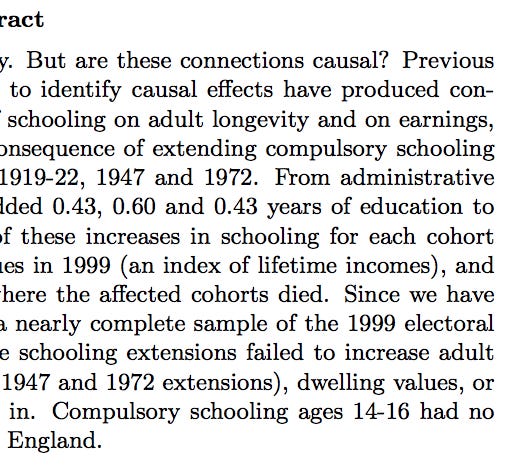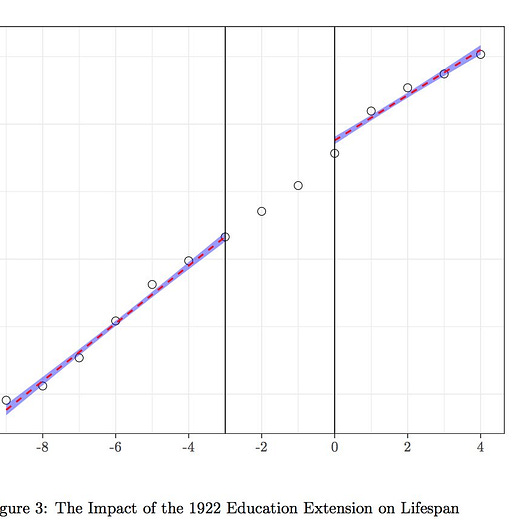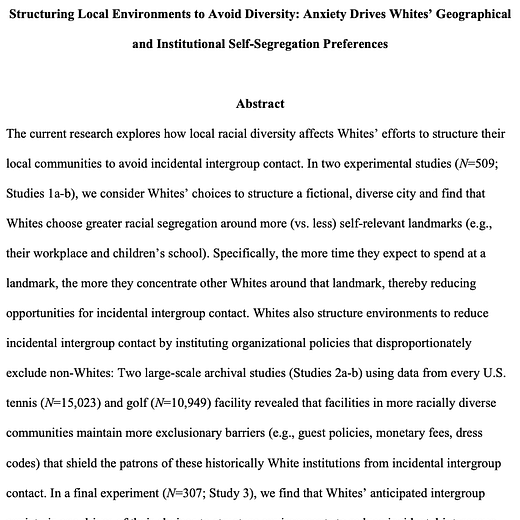Best of #econtwitter - Week of February 21, 2021 [2/2]
Feb 22, 2021
Welcome readers old and new to this week’s edition of Best of Econtwitter. Thanks to those sharing suggestions, over email or on Twitter @just_economics.
This is part two of two; part one is here.
Paper summary threads

Tamay@tamaybes
A recent paper about innovation over the long run reveals a very neat snapshot of the composition of inventions over time. Using data on US patents, it identifies the following key waves:
nber.org/system/files/w…

12:56 AM · Feb 22, 2021
113 Reposts · 363 Likes

Katherine Stapleton@KathAStapleton
Some important new points from @JosephEStiglitz & @akorinek on AI and development:
1. Big difference between looking at impacts of AI within a country & globally. When benefits accrue in one country & costs in another, need winners to compensate losers across borders

NBER @nberpubs
Labor-saving advances in AI may undo gains from globalization of developing countries and pose new challenges for economic development, from @akorinek and @JosephEStiglitz https://t.co/OF835fzbeq https://t.co/TSLmys2nih
6:18 AM · Feb 22, 2021
1 Repost · 7 Likes

C. Kirabo Jackson@KiraboJackson
Nine credible studies looked at what happened to test scores when capital spending increased for K12 public schools. Most found nothing at first. Only two found stat sig impacts after a few years (left). But *on average* looks like a compelling increase over time (right).

1:33 AM · Feb 20, 2021
81 Reposts · 308 Likes

Alexander Berger@albrgr
Interesting paper from Greg Clark and Neil Cummins arguing for a null effect and widespread publication bias in the literature on compulsory schooling impacts on health and income lse.ac.uk/Economic-Histo…
Wish they had a better income measure than house prices though.



5:44 PM · Feb 19, 2021
3 Reposts · 8 Likes

Matthew A. Kraft@MatthewAKraft
We say "Teachers are the largest school-based factor influencing student achievement"
What if we're wrong?
New @WallaceFdn report by @JasonAGrissom @annaegalite @Dr_ConstanceL shows principals have large direct effects for more kids + indirect effects.
wallacefoundation.org/knowledge-cent…

7:38 PM · Feb 16, 2021
45 Reposts · 118 Likes
More education threads from this week: technology in education RCT number one, number two; RCT on peer tutoring

Lionel Page@page_eco
Very interesting paper looking at national identity.
👉Alsace-Lorraine regions were contested between 🇫🇷 & 🇩🇪
👉 Both countries repressed regional identities
👉 Regional identities got stronger afterwards
by @sirdeh & @KaiGehring1
forthcoming @AEAjournals
papers.ssrn.com/sol3/papers.cf…

1:22 PM · Feb 16, 2021
7 Reposts · 33 Likes

Matt Graham@Matt__Graham
NEW PAPER
"Measuring Misperceptions?"
The one-word answer is "no." There is a substantial gap between the beliefs researchers describe and the beliefs surveys measure.
Paper: m-graham.com/papers/Graham_…
Presenting today (Tu 2/17) at 2 pm eastern: jawspolisci.network
[1/n]

1:03 PM · Feb 17, 2021
60 Reposts · 185 Likes

Nathan Miller@NateHMiller
How much are markets likely to self-correct after an otherwise anticompetitive merger? I address this in a new working paper with wunderkind Peter Caradonna and frequent coauthor @GloriaSheu:
“Mergers, Entry, and Consumer Welfare”
papers.ssrn.com/sol3/papers.cf…
(1/N)

4:19 PM · Feb 16, 2021
36 Reposts · 116 Likes

Joel van der Weele 🇪🇺@JoelvdWeele
1/ Tobacco & oil firms famously foment doubt about the harmful impact of their actions. In a new pub in @EJ_RES w/ @foerster_manuel we show people do the same: they justify selfishness by "casting doubt” on its impact, reducing others' prosociality: bit.ly/3jYHdnh
Thread

4:15 PM · Feb 17, 2021
25 Reposts · 93 Likes

Sephorah Mangin@SephorahMangin
My paper "Efficiency in search & matching models: A generalized Hosios condition" is now published in JET.
The main result applies to any market with frictional meeting process, but it’s particularly relevant for macroeconomists who study unemployment.
authors.elsevier.com/a/1cW7w50waSOD3
3:17 AM · Feb 22, 2021
22 Reposts · 163 Likes

Aaron Schwartz@A_Schwa
Using Medicare claims data on heart attack outcomes, I find shrinkage measures create big, hidden, performance "taxes". For hospital heart attack mortality measures, the tax is about 40% on average. For smaller hospitals in the bottom size quintile, the tax is ~80%. (6/11)

1:54 PM · Feb 19, 2021
4 Likes

Jon M Jachimowicz@jonj
🚨 New paper in press @ JESP 🚨
With ⬆️ racial diversity one might expect ⬆️ interactions btw White and non-White Americans
Instead we find that ⬆️ racial diversity prompt White Americans to structure environments to ⬇️ contact with non-White others
1/
psyarxiv.com/yzpr2


4:03 PM · Feb 16, 2021
202 Reposts · 481 Likes

Ajay Shenoy@AjaycencyMatrix
Lots of observational studies find that granting land tenure to farmers has big impacts on investment.
That's NOT what Heather Huntington and I find in our large randomized controlled trial (forthcoming JDE doi.org/10.1016/j.jdev… ).
doi.org
Redirecting
4:20 PM · Feb 16, 2021
45 Reposts · 167 Likes

Peter Hull@instrumenthull
Just posted a new (short) working paper!
It’s on the interpretation of "marginal outcome tests" for racial bias, as recently popularized by Arnold et al. (2018) and others
bit.ly/2ZbijY4
Here's a quick summary thread 👇

4:12 PM · Feb 15, 2021
23 Reposts · 111 Likes
More: power subsidies in Indian agriculture; robustness to misspecification in macro models; bureaucrat allocation
Interesting discussions

Ben Golub@ben_golub
Something I'd like to understand better:
This far into the pandemic, I'm surprised not to be seeing big Slacks organized around research topics.
What I have in mind is a substitute for conference or department hallway talk - the same in some respects, different in others.
1/
4:35 AM · Feb 19, 2021
5 Reposts · 104 Likes

Arpit Gupta@arpitrage
Some good innovation here

Journal of International Economics @JIntlEcon
New submission option! You may now elect to expedite the editorial process at the JIE using our Prior Review Process. Along with your paper, submit the decision letter and referee reports from a top-5 journal by choosing "PRP" in the Article Type Menu.
https://t.co/4ZSrlTiwhA
4:14 PM · Feb 18, 2021
2 Reposts · 13 Likes

Ben Moll@ben_moll
#EconTwitter hivemind: what are your favorite papers combining “causal” micro estimates (say from DiD or RCT) with a general-equilibrium macro model to answer an interesting macro question?
This is for my PhD teaching so the easier to read the better. Thanks in advance!
7:27 AM · Feb 15, 2021
74 Reposts · 410 Likes

Anthony Lee Zhang@AnthonyLeeZhang
Ppl in academia maybe don't have a great sense of how big the losses from coordination frictions are. For one example. How many grad students do you think have independently written cleaning code for common public datasets e.g. HMDA, ACS, call reports, etc.?
4:41 PM · Feb 20, 2021
14 Likes

